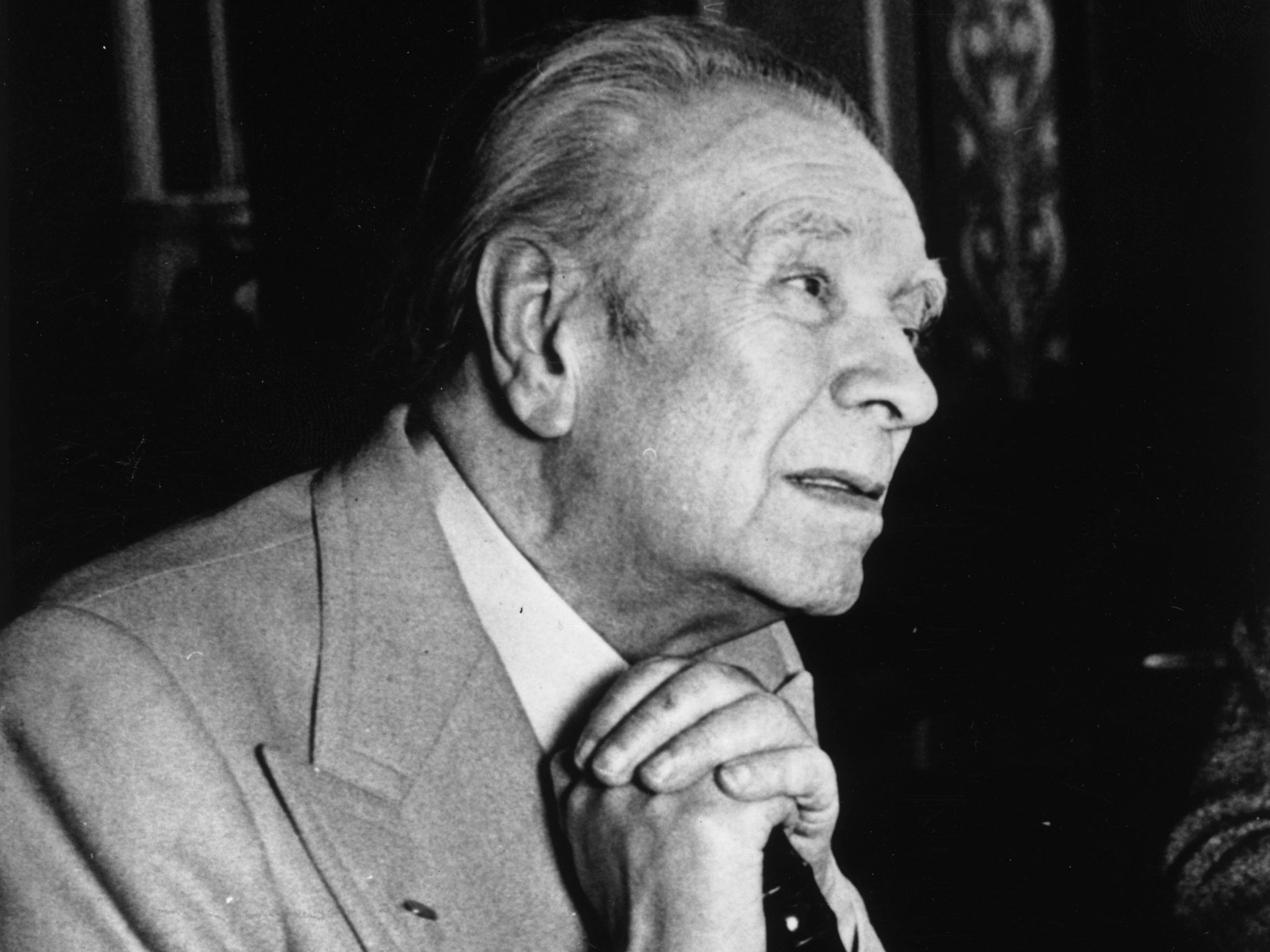Book of a lifetime: Ficciones by Jorge Luis Borges
From The Independent archive: Jake Arnott navigates the master’s delicately structured maze-like speculations. Seventeen stories – each one a time machine of the imagination

It is not the reading that matters,” declares a character in Jorge Luis Borges’s “A Weary Man’s Utopia” (from his volume The Book of Sand), “but the rereading”. I’ve applied this advice to its author’s work consistently over the years. So it would seem natural for me to pick this writer for my book of a lifetime, the only problem being which book? Or rather, which collection, since Borges’s work was all short pieces: stories, essays, poetry.
He never compromised himself by writing a novel but instead left a whole library of delicately structured maze-like speculations. Each one is like the Tardis – little time machines of the imagination and far bigger within than they appear on the outside.
Like many of my generation, I first encountered him in the Penguin edition of Labyrinths, a collection of stories, essays, parables and poetry. An excellent compendium, it’s a sort of collection of collections which I find a little frustrating (although it mirrors his theme of recursiveness).
Then in 1998 there was the reissue of all of his short stories: Collected Fictions, translated by Andrew Hurley. But this new translation, commissioned by his estate after his death, has proved controversial. The battle over Borges’s legacy in English has become as Daedalian as one of his faux literary essays. It’s hard to know where to begin rereading.
Borges’s first appearance in Anglo-Saxon culture was a story that ran in a 1948 edition of Ellery Queen’s Mystery Magazine. “The Garden of Forking Paths” is a prescient attempt to incorporate quantum ideas into fiction, with uncertainty principles and multiple outcomes.
It was to have a massive influence in the SF world as well as in more “literary” circles, and proof that Borges himself could easily exist in two states at once: in “high culture” and a pulp magazine.
So, the only way to approach him is on one’s own terms, and to have the will bent by the master. And over the years I’ve found his writing has changed as I have. My Spanish is just about good enough for me to slowly navigate my own translation; maybe now I’m ready to really begin.
So, his most famous collection, Ficciones, could be the book to take me through the rest of my years (though it is actually two collections in one – but you’d expect that, wouldn’t you?).
There’s plenty to keep me occupied: writers, dreamers, heretics, young men with impossible memories, other worlds revealed by secret encyclopedias, traitors transformed by betrayal, conspirators that plot their own downfall: 17 pieces, none longer than 25 pages; none shorter than a lifetime.



Join our commenting forum
Join thought-provoking conversations, follow other Independent readers and see their replies
Comments